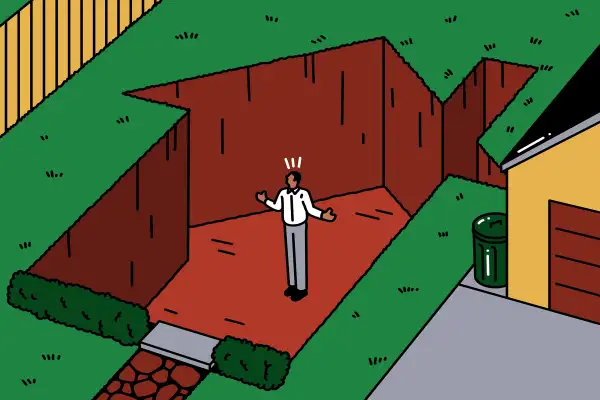Your Home May Lose Value in 2023. Should You Worry?

The housing market has been kind to homeowners these last few years. The average home value has jumped 43% since late 2019, and sellers have raked in eye-popping profits because of it.
But that was then.
As we head in 2023, the market looks very different. With mortgage rates more than double their year-ago level, buyers are pulling back. Home sales have slowed 6% compared to last year, and prices have already started to fall (at least monthly).
“Most forecasts are now calling for a decline in home prices next year,” says Kenon Chen, executive vice president of corporate strategy at Clear Capital, a real estate data and technology provider.
To be clear: Some economists expect prices to only plateau or rise very modestly in 2023. A number of others, as Chen notes, predict a notable drop — particularly in pandemic-era hotspots. Moody’s Analytics, for example, expects a 10% decrease in nationwide home prices. By other accounts, the drop could top 20%.
What exactly would those lower prices — and the home values tied to them — mean for current homeowners? That depends.
For some, it could be devastating. For others, there may be some savings to be had. As Jessica Peters, a real estate broker with Douglas Elliman, puts it, “Prices will trend downward, but that doesn’t necessarily mean doom and gloom.”
Which group do you fall into? Here’s what lower home values would really mean for homeowners — and who should (and shouldn’t) be worried.
Sellers will see less profit
The most obvious impact of lower home values would be fewer profits for sellers. It’s just math: If your home could sell for $500,000 today but only $450,000 in a few months, you’d pocket less by selling later.
To be clear, though: It wouldn’t mean you’d necessarily lose money.
“It depends on when someone purchased their home,” says Sam Sawyer, founder and CEO of Pinnacle Realty Advisors in Austin, Texas. “In a lot of markets, homeowners will still have great equity if they purchased two or more years ago, and I think those people who need to move will be able to sell and get a good price.”
That’s because prices have been on a steep run-up for a long time. Since the second quarter of 2020, median home prices have jumped from $322,000 to upwards of $454,000, according to the U.S. Census Bureau. If you purchased your home before or early on in this jump, you have likely seen its value grow enough to guarantee a return, even with a moderate drop in value.
If you purchased at the height of it, though, you could be in trouble if values drop more than a few percent.
“If you bought your home in 2008 or 2009, selling in 2023 will still be profitable for you,” says Maureen McDermut, a real estate agent with Sotheby's International Realty in Santa Barbara, California. “If you bought in 2021 and want to sell in 2023, then you may end up taking a loss. In the latter case, it is best to wait until the market corrects and prices adjust upward.”
Home equity borrowers will have fewer options
Declining home values would also mean less equity for homeowners across the board. Home equity — or the difference between your home’s current value and any mortgage loans tied to it — has skyrocketed in recent years. The average American homeowner gained $60,000 of it in the last year alone.
That’s a good thing. The more equity you have, the more you stand to gain when you sell. But more than this, equity is also a financial tool. You can borrow against it — using a cash-out refinance, home equity loan or home equity line of credit (HELOC) — and turn it into cash without selling. Many homeowners do this to pay for repairs or to consolidate debt.
If equity declines, though, homeowners will be able to borrow less — or maybe not be eligible for these sorts of products at all. This could be big considering how popular HELOCs have become in recent months. In the first half of 2022, HELOC lending reached its highest point in 15 years, jumping 30% compared to 2021.
“As it relates to tapping one's equity, that might get a bit tougher, as lending standards will tighten and some equity will likely erode,” says Rick Ruvin, partner at Falk Ruvin Gallagher Real Estate Team in Milwaukee. “If a homeowner thinks they may need to tap into some of that equity, it’s better to get that HELOC in place now.”
Those that already have HELOCs may see their lines of credit reduced or frozen — meaning they won’t be able to withdraw additional funds. Lenders do this to prevent borrowers from overleveraging.
As Tom Parrish, head of retail lending product management at BMO, explains, “Most institutions have terms that would allow for the credit line to be suspended or reduced if the value of the property declines significantly.”
Some recent borrowers will owe more than their home is worth
The biggest concern is the possibility of going upside down on your mortgage — or owing more than your home is worth. If this were to happen and you needed to sell, the property wouldn’t make enough to pay off your full loan balance.
You’d then either face a short sale — when you sell your house at a steep discount and repay what you can (with your lender’s approval first) — or a foreclosure, in which the bank seizes your house and sells it off for you.
“This is a very serious and potentially real concern for some homeowners that recently purchased a home in the last twelve months,” says Michael J. Thomas, broker and co-owner of RE/MAX Cherry Creek in Denver.
Data firm Black Knight shows that 8% of homeowners who purchased a home in 2022 are now at least marginally underwater on their loans and four in 10 have less than 10% equity in their properties.
Homeowners who made very small down payments (often those with FHA or VA loans) or who have borrowed heavily against their property are also more at risk.
“It could be devastating to anyone who took out a significant amount of equity in the past 18 months,” says Odest Riley Jr., broker and owner at WLM Realty in Inglewood, California. “The biggest concern will be owners who overpaid for a home during 2021 and face job losses and lower household incomes.”
Fortunately, most homeowners should have enough equity to avoid any serious consequences, even if home values drop.
“Even after a home price decline of 20%, today’s homeowners would have equity roughly on par with homeowners in 2002 to 2005,” says Danielle Hale, chief economist at Realtor.com, noting that homeowners now are in a much stronger position than those of the pre-crash era. “There will surely be some homeowners who face personal financial difficulty, but data suggests that many of these households will have options other than foreclosure or default.”
Silver lining? Lower property taxes and home insurance premiums
While falling home values would certainly have some grim effects for homeowners, there’s also a possible silver lining: Paying less for things like property taxes and homeowners insurance, both of which are based (at least in part) on property value.
Don’t expect an immediate reduction in these bills, however. Insurance premiums, for example, are typically set on an annual or bi-annual basis, so you’d have to wait until it’s time to renew your policy to see any change. Property taxes are annual, too, though they’re assessed at the end of each calendar year and paid early the next.
“Remember taxes are paid in arrears,” says Lisa Harris, an agent with RE/MAX Center in Braselton, Georgia. “It would be 2024 before you see the benefit of losses in value produced in 2023.”
More from Money:
How to Prepare Your Home for Winter and Lower Your Heating Bills
Homebuyers and Sellers Alike Are Loving This Popular Trick to Lower Mortgage Rates
House Won't Sell? 6 Ways to Sweeten the Deal and Attract Buyers


